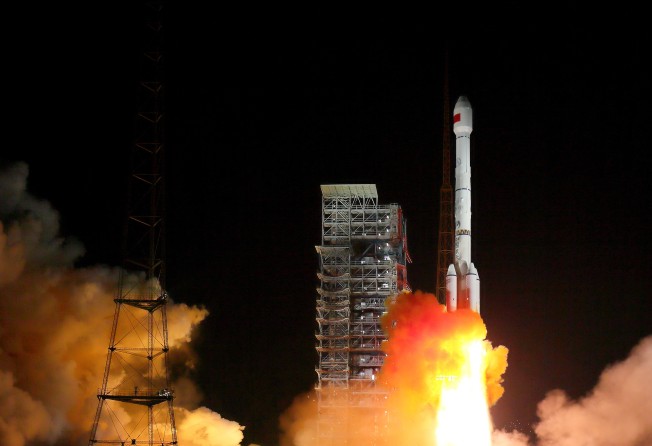Blast-off for China’s new-generation Beidou-3 satellites to rival GPS
Probes were due to go into orbit in July, but mission was postponed after failure of two other satellite launches

China has launched the first of its most powerful generation of navigational satellites as part of efforts to expand the global reach of its rival to GPS and to cut reliance on overseas systems.
The launch of the two Beidou-3 satellites in Sichuan on Sunday after months of delays represents the start of a major upgrade to China’s home-grown navigational strength.
The satellites are among more than 30 China plans to send up over the next three years to create a network that will be able to support military operations around the world without relying on competitors such as the US-developed GPS or Russia’s GLONASS.
There are already more than 20 earlier Beidou versions in orbit but their coverage is limited to China and the region.
The expanded system will also have a wide range of civilian applications, from smartphones to self-driving cars.
Yang Changfeng, BeiDou’s chief designer, said the new satellites would be able to spot which lane a car was using on a motorway, detect the sway of a building in high winds and guide fire trucks to the nearest water hydrant.
Scientists involved in the project also said the new system would give civilian users an accuracy of 2.5 metres to five metres, putting it on a par with existing GPS technology. The Chinese military and some government users would be able to use encrypted signals for millimetre precision, the scientists said.
The new satellites went up on a Long March rocket from the Xichang launch centre in Sichuan province on Sunday night.
They were scheduled to go into orbit in July but the blast-off was postponed after two other satellite launches failed.
China needs more advanced satellites to carry out tasks such as guiding Chinese warships to their naval base at Djibouti in East Africa, among other military and commercial operations.
“When the service goes global in 2020, Beidou ... will provide important coordinates of time or space and become a pillar of national security,” Yang said.
He said the project team worked under enormous pressure to meet the government’s tight deadlines.
They had to cut the new satellites’ development time by nearly a third and revamp the whole production line to meet a busy launch schedule, which will involve putting three satellites into orbit every couple of months next year.
China has built more than 1,500 Beidou ground stations across the country to improve the system’s accuracy. It also plans to set up similar bases in dozens of countries including Pakistan and Thailand to extend the high-precision service to military and government users overseas.
Unicore Communications, a company producing Beidou chipsets for positioning devices in Beijing, said their latest products included support for the newest Beidou satellites.
“The satellites have just been launched. They still need some time for testing and calibration before we can evaluate their actual performance,” a Unicore product manager said.
He expected most smartphones to have a chip to receive Beidou signals in the near future.
Many hand-held devices now receive signals from both GPS and GLONASS for a more reliable connection and improved accuracy.
“Beidou will significantly increase the total number of ... satellites in the sky and this will improve user experience,” he said.
“In three years’ time people may still say ‘I’m using GPS’ but in fact their phone is tuned into Beidou.”